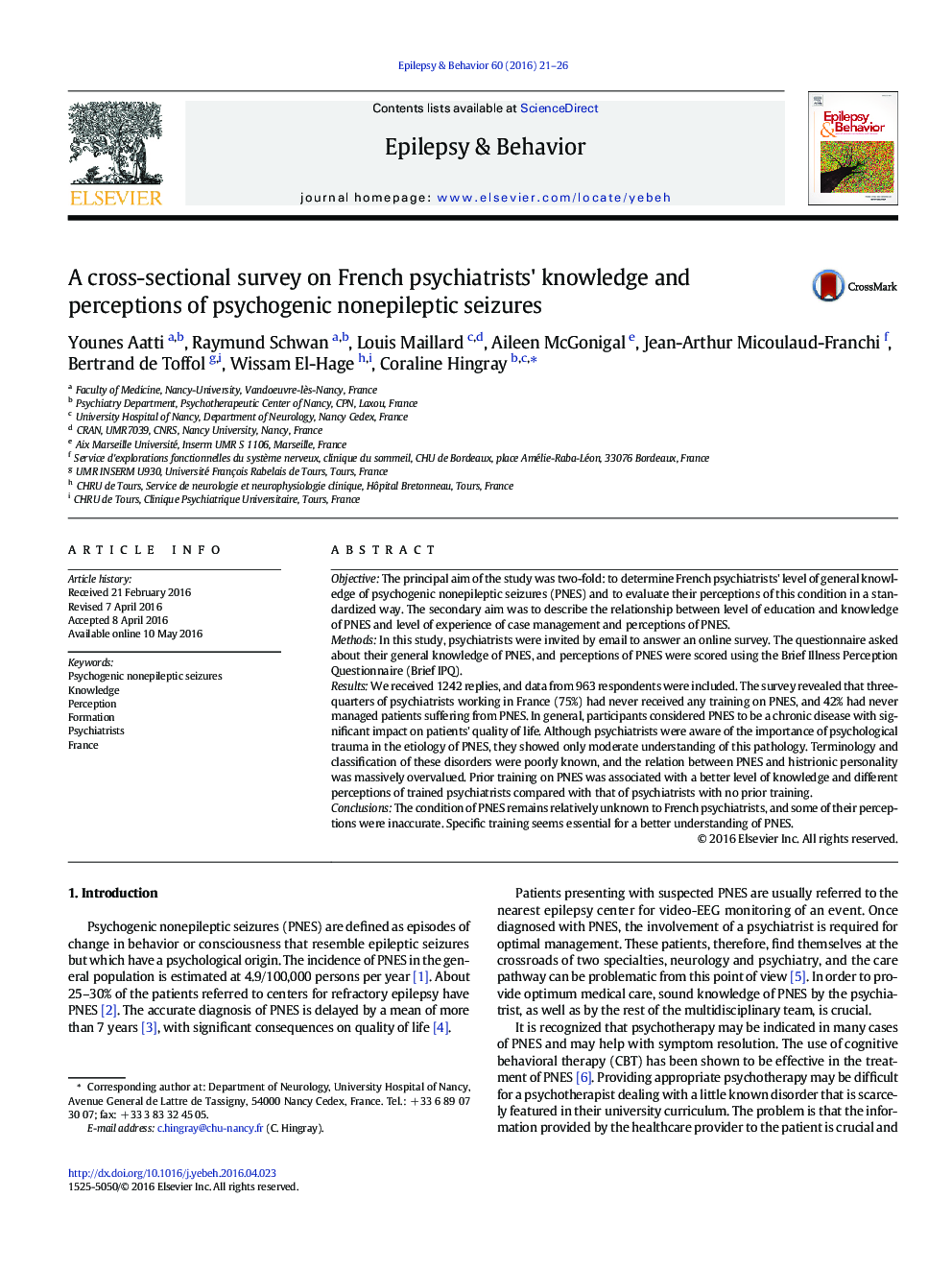| Article ID | Journal | Published Year | Pages | File Type |
|---|---|---|---|---|
| 6009874 | Epilepsy & Behavior | 2016 | 6 Pages |
â¢Three quarters of psychiatrists working in France (75%) who took part in this study had never received any training on PNES.â¢42% of physicians recognized that they had never managed a patient with PNES.â¢The relation with histrionic personality was massively overvalued (78%).â¢One third of psychiatrists (30%) admitted not understanding the disease or claimed to have only a limited understanding (39%).â¢Having received a specific training on PNES was associated with significantly better knowledge about the diagnostic process and management.
ObjectiveThe principal aim of the study was two-fold: to determine French psychiatrists' level of general knowledge of psychogenic nonepileptic seizures (PNES) and to evaluate their perceptions of this condition in a standardized way. The secondary aim was to describe the relationship between level of education and knowledge of PNES and level of experience of case management and perceptions of PNES.MethodsIn this study, psychiatrists were invited by email to answer an online survey. The questionnaire asked about their general knowledge of PNES, and perceptions of PNES were scored using the Brief Illness Perception Questionnaire (Brief IPQ).ResultsWe received 1242 replies, and data from 963 respondents were included. The survey revealed that three-quarters of psychiatrists working in France (75%) had never received any training on PNES, and 42% had never managed patients suffering from PNES. In general, participants considered PNES to be a chronic disease with significant impact on patients' quality of life. Although psychiatrists were aware of the importance of psychological trauma in the etiology of PNES, they showed only moderate understanding of this pathology. Terminology and classification of these disorders were poorly known, and the relation between PNES and histrionic personality was massively overvalued. Prior training on PNES was associated with a better level of knowledge and different perceptions of trained psychiatrists compared with that of psychiatrists with no prior training.ConclusionsThe condition of PNES remains relatively unknown to French psychiatrists, and some of their perceptions were inaccurate. Specific training seems essential for a better understanding of PNES.
